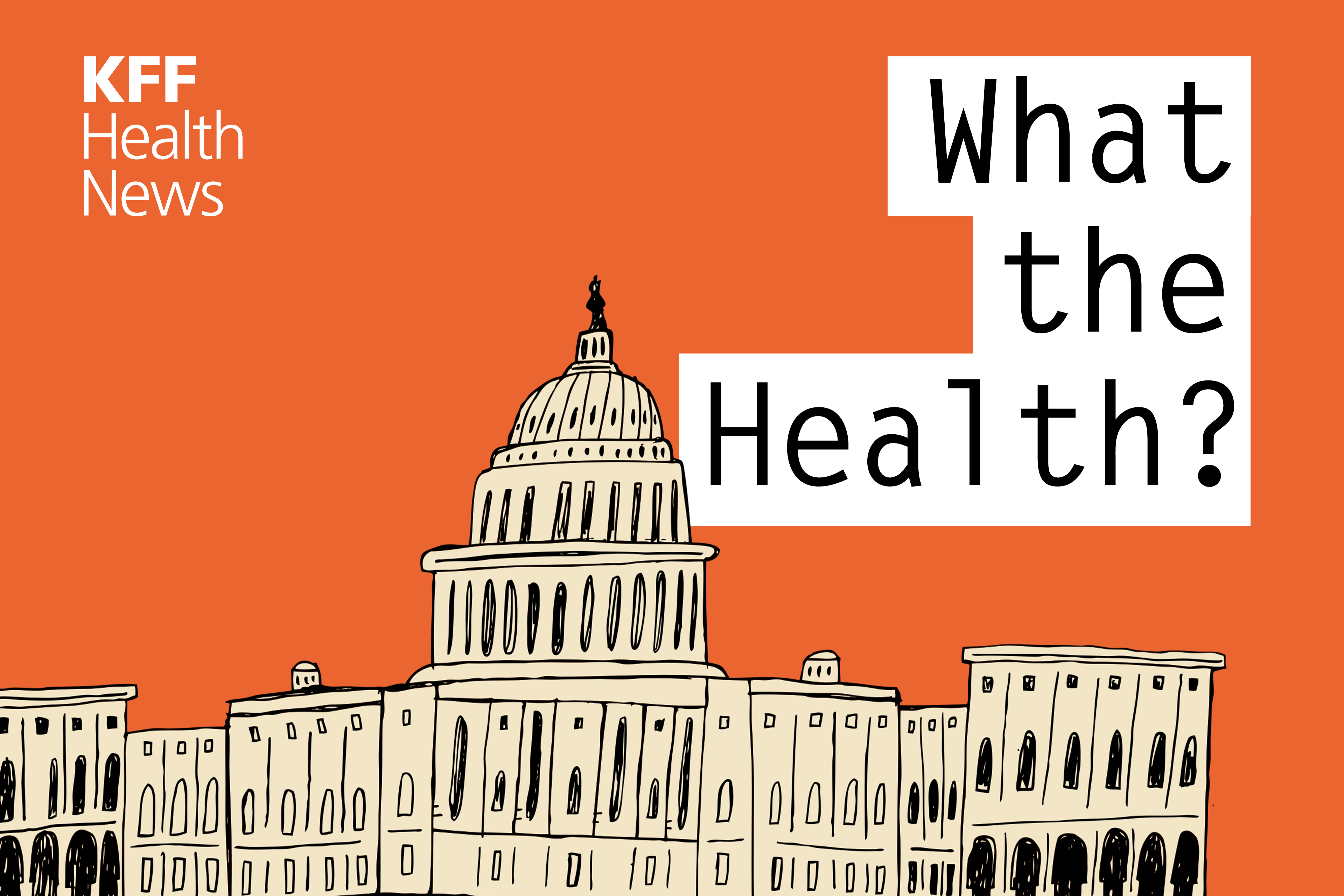Forward by Stewart Gandolf, Chief Executive Officer
At Healthcare Success, we understand that a patient’s journey often beings with a search query. In this blog, our Technical Program Manager, Victoria Shepherd, explores the critical role of symptom search optimization.
She shares how organizations can leverage this healthcare marketing trend to engage potential patients early and offers key strategies for optimizing symptom-based searches to drive patient conversions.
Symptom search optimization is crucial for:
• Guiding patient journeys.
• Competing locally with large health sites.
• Balancing visibility with conversion rates.
Let’s dive in.
Symptom Search Optimization: Capturing Early Patient Interest
In today's digital-first healthcare world, more consumers turn to search engines for health-related information before contacting medical professionals. This fundamental shift in behavior presents both a challenge and an opportunity for healthcare organizations. By understanding symptom-based SEO for healthcare websites, you can connect with potential patients at the earliest stages of their healthcare journey.
Why Symptom Searches Matter for Healthcare Organizations
The Patient Journey Begins With a Search Engine
Today's patient journey rarely starts with a phone call to schedule an appointment. Instead, it begins with a search query: "sharp pain in lower right abdomen," "chronic headache causes," or "persistent cough and fatigue." These symptom-based searches represent the initial touchpoint in the modern patient acquisition funnel.
A survey of 1,391 US consumers found that over half (54%) have self-diagnosed medical conditions based on online information, with search engines and medical websites being the primary sources.
How Early Search Intent Leads to Patient Conversions
The path from symptom search to patient conversion follows a predictable pattern:
- Awareness: A person experiences symptoms and searches for information.
- Consideration: They begin to understand potential diagnoses and treatment options.
- Decision: They select a healthcare provider for evaluation and treatment.
Healthcare organizations that establish visibility and authority during the awareness phase gain a significant advantage in the subsequent stages of the patient journey. By providing valuable, accurate information when patients first express concern, you position your business as a trusted source of expertise—making you the natural choice when they’re ready to schedule an appointment.
The Challenges of Ranking for Symptom-Based Keywords
Competing With Large Health Sites for Visibility
Well-established health information sites like WebMD, Mayo Clinic, and Healthline dominate the symptom search landscape. These sites have built massive content libraries and domain authority over many years, making competition for top search positions extraordinarily difficult.
Local healthcare providers must develop sophisticated strategies to carve out visibility in this competitive environment. While they may not outrank major health portals for broad terms like "chest pain," they can establish strong positions for more specific, localized search queries that represent high-intent local patients.
Understanding the Complexity of Search Intent
Symptom searches come with complex, varied intent. A person searching "sudden chest tightness" might be:
- Seeking emergency guidance for a potentially life-threatening condition.
- Researching anxiety symptoms.
- Looking for self-care remedies for acid reflux.
- Seeking a cardiologist for a consultation.
This variety of potential intent makes medical content strategy and content development challenging. Successful symptom search optimization requires careful audience segmentation and content structured to address multiple potential needs while guiding high-value prospects toward conversion points.
Google's Medical Credibility Standards (E-E-A-T) and What They Mean for You
Google holds medical content to exceptionally high standards through its Experience, Expertise, Authoritativeness, and Trustworthiness (E-E-A-T) guidelines. For healthcare providers, this means content must be technically optimized and demonstrate clinical accuracy and expertise.
Medical content requires:
- Clear authorship from qualified medical professionals.
- Regular reviews and updates to maintain accuracy.
- Proper citation of medical research and statistics.
- Transparency about the scope of expertise and limitations.
These heightened standards create barriers to entry but also provide advantages for legitimate healthcare providers who can demonstrate genuine medical authority.
The Power of AIO: Balancing Coverage With Conversion
One of the key challenges and opportunities in symptom search optimization is ensuring your content isn't just visible but effective in converting searchers into patients. A recent analysis of AI-optimized (AIO) keyword performance across various industries reveals important insights.
Rather than simply focusing on visibility, healthcare providers need to understand how well their optimized content drives actual conversions. The study comparing AIO keyword coverage with AIO conversion impact reveals some important lessons.
Key Insights:
The study examined two key metrics:
- AIO Keyword Coverage
This measures how frequently different industries appear in search results when using AIO-optimized keywords. - AIO Conversion Impact
This measures the percentage of conversions (e.g., form submissions and appointment requests) triggered by these AIO-optimized keywords.
Here are some highlights from the analysis:
- Healthcare Dominance in Coverage
The healthcare sector exhibits strong AIO keyword coverage, frequently appearing in the top search results (reaching as high as 33.67% in the top ten positions). Business Services and "Other" industries also demonstrate significant keyword presence (ranging from 25.13% to 29.60%). - Biotech's Conversion Prowess
While Biotech's keyword coverage is moderate (27.22%), it leads in AIO-triggered conversions (38.25%). This suggests a high degree of effectiveness in turning search traffic into desired actions. - Conversion Success in Education and Finance
Education and Financial Services also perform well in conversions, ranking second and third with 21.89% and 15.75%, respectively. - Healthcare's Conversion Gap
Despite its strong keyword coverage, the healthcare sector shows a relatively lower conversion impact (14.94%). This indicates potential inefficiencies in turning search visibility into tangible patient actions. - SaaS/IT: Targeted Impact
Although appearing lower in terms of keyword coverage, the SaaS/IT sector demonstrates a presence in conversions, suggesting its ability to effectively reach a targeted audience.
The lesson for healthcare organizations? It's not enough to simply target a wide range of symptom keywords. You need to focus on high-intent keywords, like “Find a psychiatrist covered by [Insurance] near me” or “Acne scar treatment specialist in [City],” and create content that effectively addresses the searcher's needs and guides them towards scheduling an appointment. Analyze your own data to identify keywords that drive traffic and lead to actual patient conversions. Use AIO to optimize keywords that you know are important for conversions.
Strategic Approaches to Symptom Search Optimization
Establishing Authority and Credibility in the Medical Space
Building authoritative content begins with leveraging your business’s unique clinical expertise. Content marketing strategies for healthcare organizations should emphasize the following:
- Physician-authored or physician-reviewed content.
- Clear credentials and professional backgrounds of contributing experts.
- Integration of practice-specific case studies (anonymized appropriately).
- Citations to recent, peer-reviewed medical research.
- Comprehensive treatment of topics with appropriate depth.
Remember that authority signals extend beyond your content to your entire digital presence. This includes your professional affiliations, hospital partnerships, board certifications, and patient testimonials.
Crafting Content That Attracts and Engages Early-Stage Patients
Effective symptom-based content strikes a delicate balance between providing valuable information and encouraging appropriate medical consultation. Your content should:
- Address common questions about symptoms with accurate information.
- Explain when symptoms warrant immediate medical attention.
- Outline potential diagnostic approaches.
- Discuss treatment options available.
- Include clear calls to action for appointment scheduling.
Content formats should be diversified to include:
- Comprehensive symptom guides.
- Patient education resources.
- FAQ collections addressing common concerns.
- Video explanations from your physicians.
- Patient testimonials describing symptom resolution.
Leveraging Local SEO to Convert Nearby Patients
While national health sites dominate general symptom searches, local medical practices have distinct advantages in location-based search optimization. Your local healthcare SEO strategy should include the following:
- Optimization of Google Business Profile with complete medical specialty information.
- Location-specific symptom content (e.g., "Finding Relief for Seasonal Allergies in [City]").
- Local structured data markup on medical service pages.
- Consistent NAP (Name, Address, Phone) information across all directories.
- Integration of local landmarks and neighborhoods in content where appropriate.
These location signals help your business appear in proximity-based searches like "neurologist near me" that often follow initial symptom research.
Technical SEO Considerations for Medical Websites
Beyond content development, medical website optimization requires attention to technical SEO factors, including:
- Proper schema markup.
- Optimized page speed and mobile responsiveness.
- Secure (HTTPS) implementation and privacy compliance.
- Semantic HTML structure with appropriate heading hierarchy.
- Accessible design for users with disabilities.
Technical optimization ensures that search engines can properly crawl, index, and present your valuable content.
Why DIY SEO Isn't Enough for Healthcare
Common SEO Mistakes That Limit Visibility
Many healthcare organizations attempt to handle SEO internally but struggle to gain traction due to common pitfalls:
- Surface-level content that fails to demonstrate genuine expertise.
- Targeting overly competitive terms without location qualifiers.
- Inconsistent publishing schedules and content maintenance.
- Neglecting technical optimization and site performance.
- Failure to properly integrate traditional and digital marketing channels.
These mistakes not only limit search visibility but can also damage credibility with potential patients who expect medical content to meet high standards of accuracy and professionalism.
The Importance of Data-Driven Optimization and Continuous Updates
Medical SEO is not a one-time project but an ongoing process requiring:
- Regular content audits and updates to reflect current medical consensus.
- Performance analysis to identify high-converting content topics.
- Competitive monitoring to identify emerging keyword opportunities.
- Algorithm adaptation as search engines evolve their evaluation criteria.
Most healthcare organizations lack the specialized tools and analytical expertise to maintain this level of optimization while focusing on their core competency: providing excellent patient care.
Partnering With Experts: How We Help Healthcare Organizations Capture Early Patient Interest
Our Proven Approach to Symptom Search Optimization
At Healthcare Success, we've developed a comprehensive healthcare digital marketing methodology specifically designed for healthcare organizations seeking to optimize for symptom-based searches:
- Competitive Analysis
We identify keyword opportunities where your business can realistically establish visibility against larger competitors. - Clinical Collaboration
We work with your physicians to develop medically accurate content that showcases your specific expertise. - Multi-Channel Integration
We coordinate symptom-based content across your website, social channels, and digital advertising. - Conversion Optimization
We implement clear patient acquisition pathways from informational content to appointment scheduling. - Performance Tracking
We measure not just traffic but meaningful metrics like appointment requests and new patient acquisition.
This integrated approach ensures that your symptom search strategy delivers not just visibility but actual business growth.
Real Results: How Our SEO Strategies Drive Patient Growth
Our client success stories demonstrate the power of strategic symptom search optimization:
- A specialty practice increased new patient appointments by 43% through targeted content addressing their most profitable condition-related searches.
- A multi-location provider network established market leadership for symptom terms related to a newly added service line.
- An independent physician practice successfully competed against hospital systems for local visibility on high-priority symptom searches.
These results stem from our deep healthcare marketing specialization and dedication to measurable outcomes tied to business objectives.
Take the Next Step: Get Expert SEO Support Today
Your healthcare organization deserves a strategic partner with specialized expertise in healthcare digital marketing. Contact Healthcare Success today to discuss how our symptom search optimization strategies can help you connect with patients earlier in their healthcare journey and grow your business. Would you like recommendations on improving AIO-driven conversions for specific industries?
Our healthcare marketing specialists will provide a comprehensive assessment of your current digital presence and identify specific opportunities to capture early patient interest through strategic SEO initiatives.
Healthcare Success is a full-service healthcare digital marketing agency specializing in helping healthcare organizations attract new patients and grow their businesses through data-driven strategies and healthcare-specific expertise.



















 English (US) ·
English (US) ·